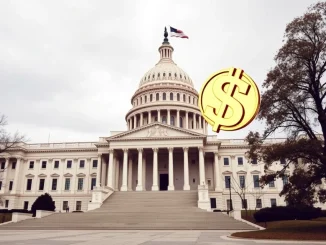
South Korea is a major player in the global cryptocurrency market, and recent political changes signal potentially significant shifts. With President Lee Jae-myung now in office, the focus is on what his administration could mean for the future of South Korea crypto. Crypto enthusiasts and industry participants are keenly watching for policy developments that could impact everything from investment access to regulatory frameworks.
What Does President Lee Mean for South Korea Crypto?
President Lee Jae-myung officially began his term as South Korea’s 21st president on June 4. Leading up to his election, he made several statements and proposals indicating a willingness to engage with and potentially reshape the country’s approach to digital assets. His administration’s stance suggests a move towards integrating cryptocurrencies more formally into the financial system while also addressing risks.
Key Pillars of Korean Crypto Policy Under Lee
The new administration is exploring several key initiatives that could define Korean crypto policy for the coming years. These proposals aim to foster growth, enhance investor protection, and establish clearer rules for the market:
- KRW-Pegged Stablecoins: Discussions are advancing on introducing stablecoins tied to the Korean won. This initiative is seen as a strategic move to manage foreign currency outflows and strengthen the domestic digital asset ecosystem. A digital asset committee launched in May is reportedly involved in these talks.
- Spot Crypto ETFs: The possibility of allowing spot cryptocurrency Exchange-Traded Funds (ETFs) is under review. This would open new avenues for both institutional and retail investors to gain exposure to crypto assets within a regulated investment vehicle, potentially increasing market liquidity and accessibility.
- ICOs and STOs: There’s renewed interest in revisiting earlier proposals to permit Initial Coin Offerings (ICOs) and Security Token Offerings (STOs). This reflects a growing acceptance of crypto fundraising methods and could provide new capital formation opportunities for blockchain projects in South Korea.
President Lee Crypto Stance on Taxation and Investor Safety
Understanding the President Lee crypto position involves looking at both market development and consumer protection. A significant point of discussion has been the timing of crypto taxation.
- Crypto Tax Delay: The Democratic Party has advocated for postponing the implementation of crypto taxation. It is unlikely that crypto income will be taxed before 2027, pending the establishment of a comprehensive and fair regulatory framework for digital assets. This delay provides a window for the industry and investors to adapt to potential future tax obligations.
- Investor Protections: Alongside fostering growth, the administration is expected to increase oversight, particularly for stablecoins and crypto trading platforms. The goal is to implement tighter regulations to enhance safeguards for investors, reducing risks associated with market volatility and platform stability.
Shaping South Korea Crypto Regulation and Industry Growth
The broader impact of the new leadership extends to how South Korea crypto regulation will evolve. While aiming for a more formalized market, there’s also a commitment to supporting the underlying technology and preventing illicit activities.
- Ecosystem Support: President Lee’s campaign included promises to actively foster Blockchain innovation South Korea. This suggests that policy measures aimed at supporting blockchain technology development, research, and adoption across various sectors are likely to be introduced, strengthening South Korea’s position in the global digital economy.
- Crackdown on Misconduct: The administration is expected to take a firm stance against market manipulation, money laundering, and tax evasion within the crypto space. This aligns with the goal of building a secure and trustworthy environment for digital asset transactions and investment.
- Exchange Regulation Tweaks: While the ‘one-exchange-one-bank’ rule remains a key part of the regulatory landscape, there’s an appetite to ease other restrictions on crypto exchanges. The aim is to help local platforms become more competitive on the international stage while maintaining necessary oversight.
Conclusion: A New Era for South Korea Crypto?
President Lee Jae-myung’s administration appears set to usher in a new era for South Korea crypto. The proposed initiatives, ranging from introducing KRW stablecoins and allowing spot ETFs to revisiting ICO/STO regulations and delaying taxation, signal a proactive approach to integrating digital assets into the national economy. While focusing on fostering blockchain innovation and supporting the ecosystem, the administration is also prioritizing robust investor protection and cracking down on misconduct. These potential changes suggest a future where South Korea’s crypto market is more regulated, accessible, and internationally competitive, shaping its trajectory for years to come.



